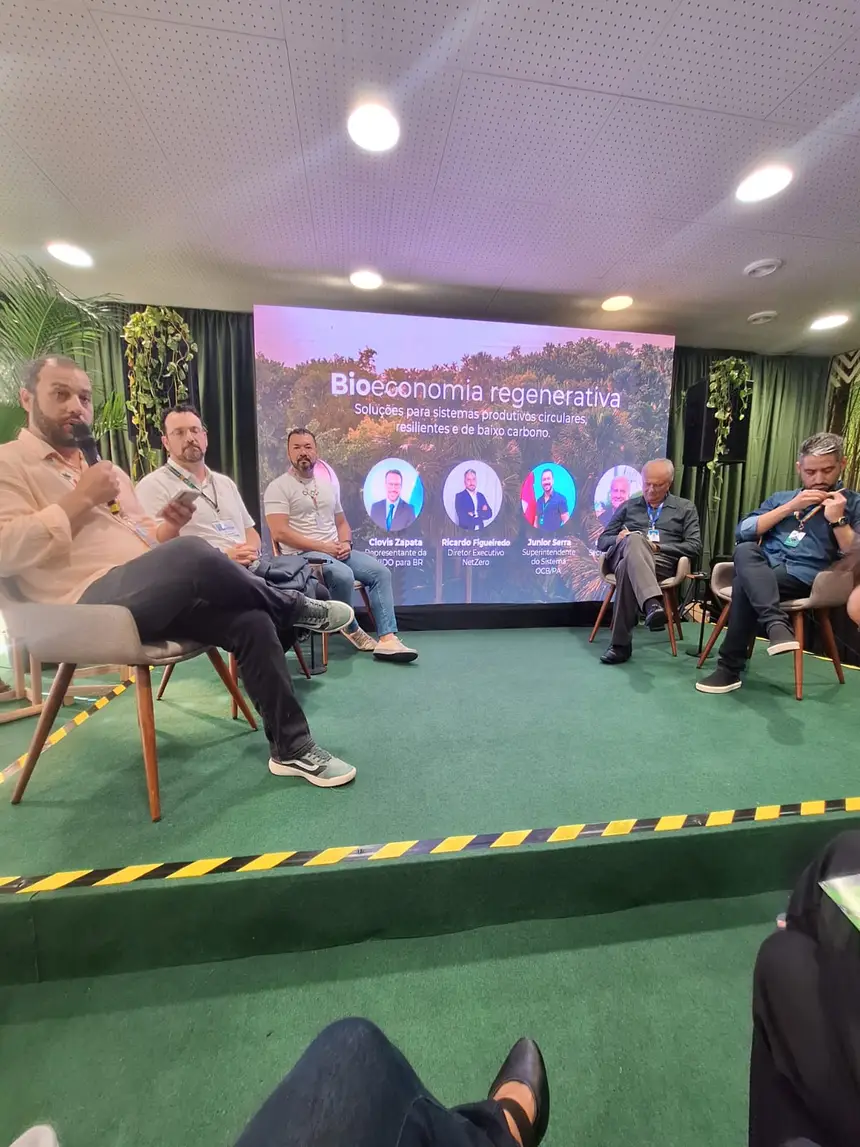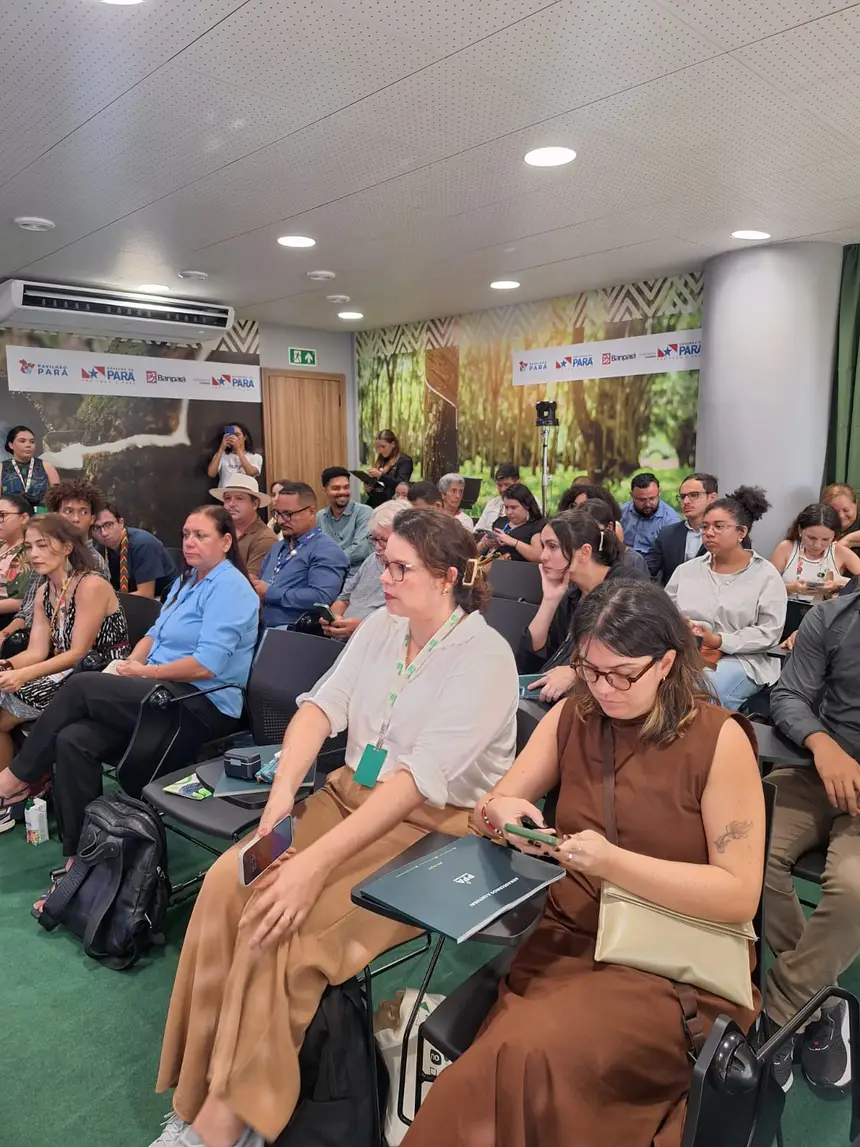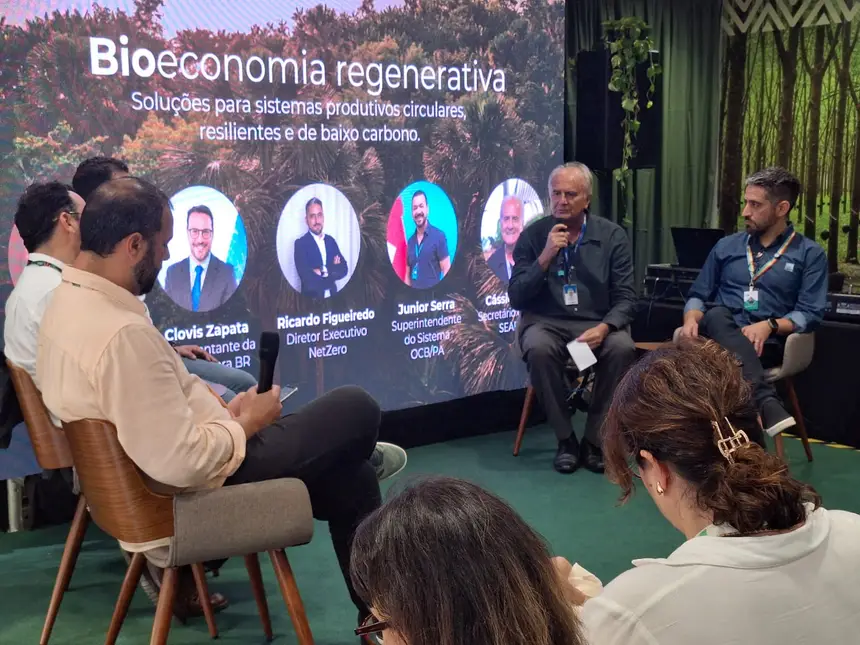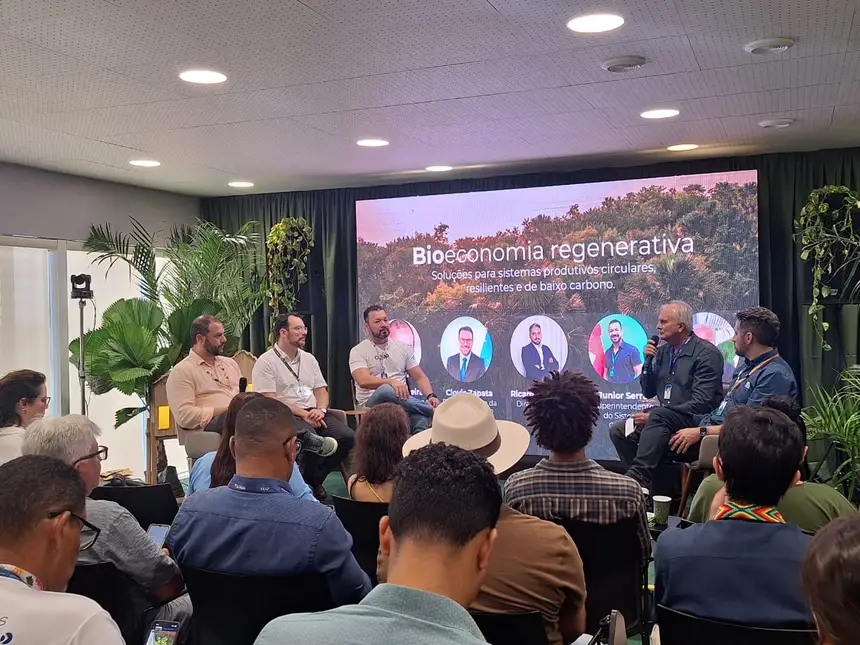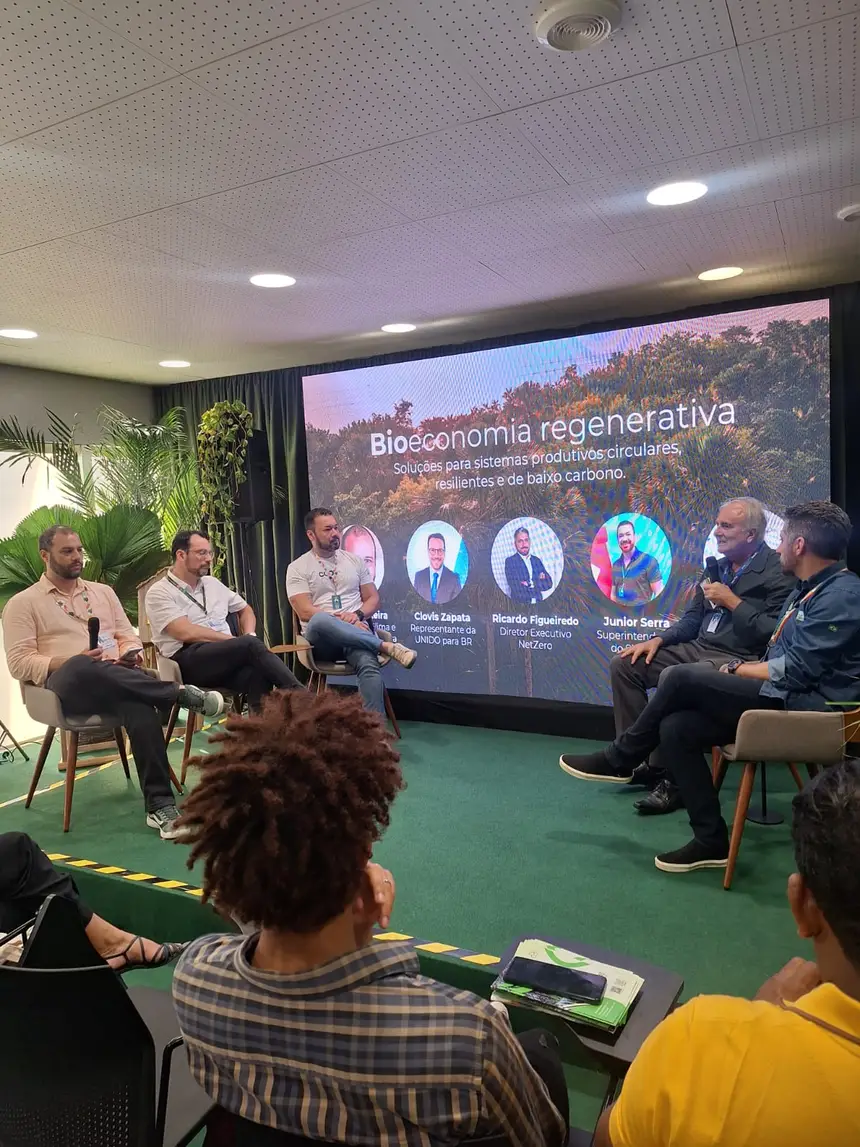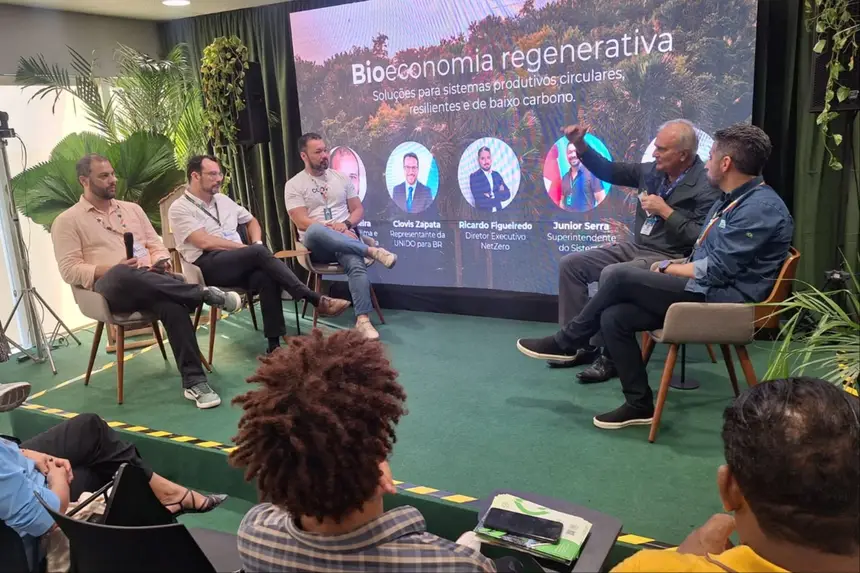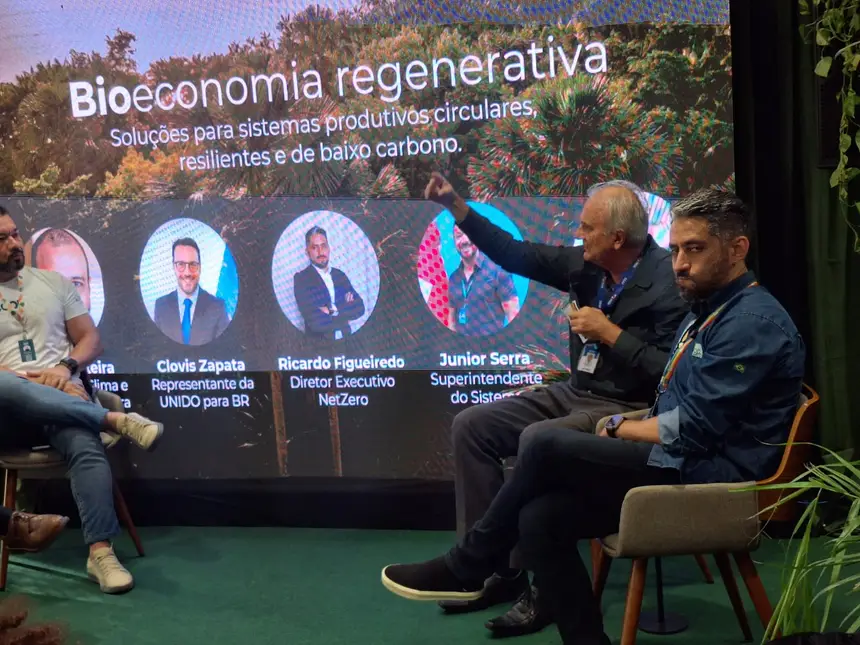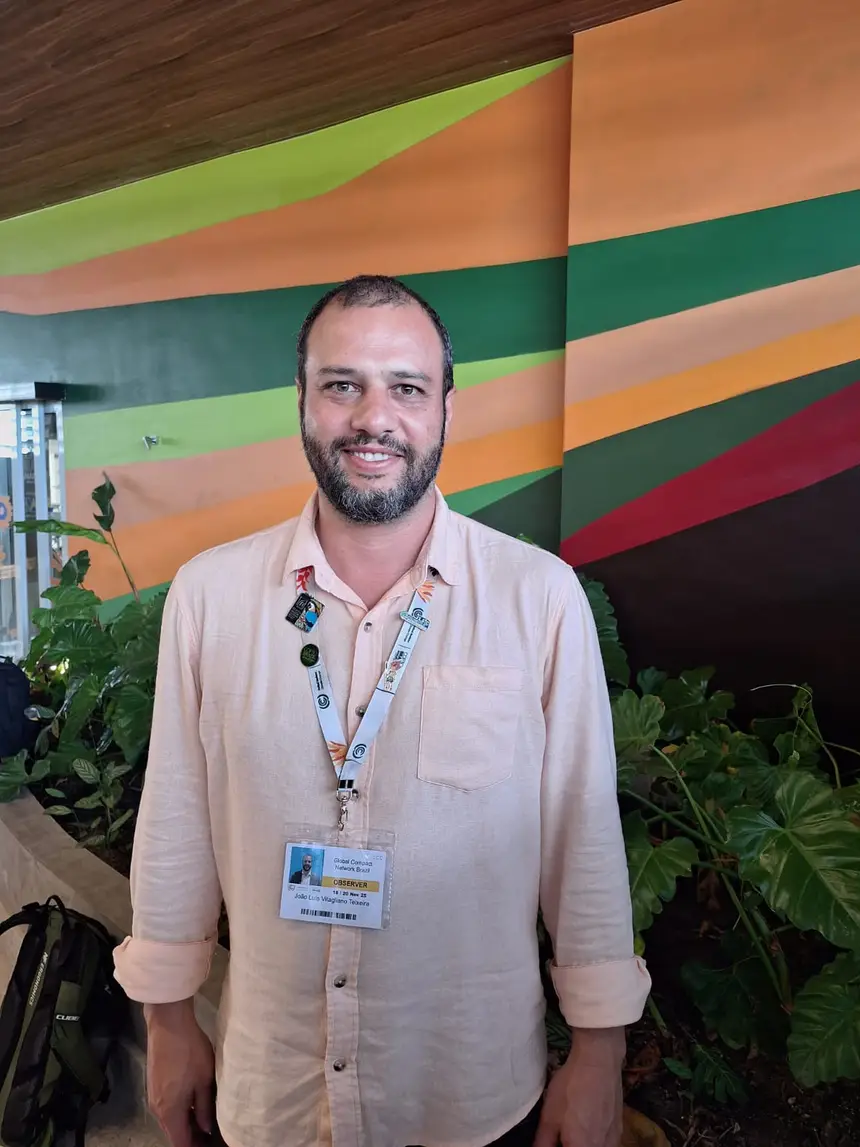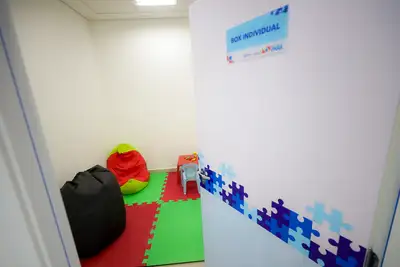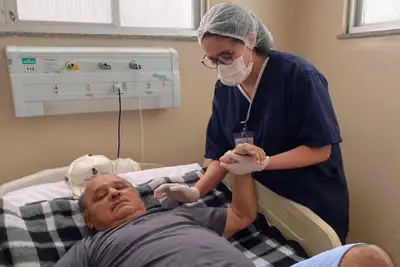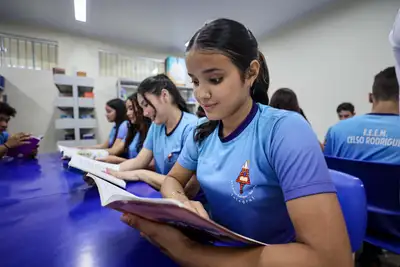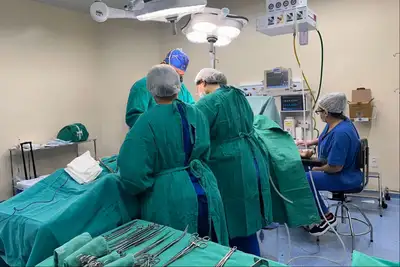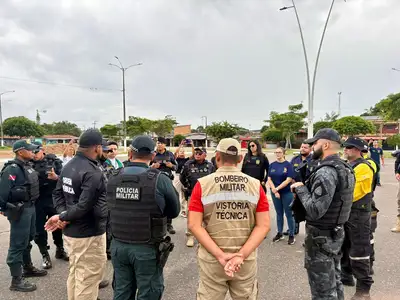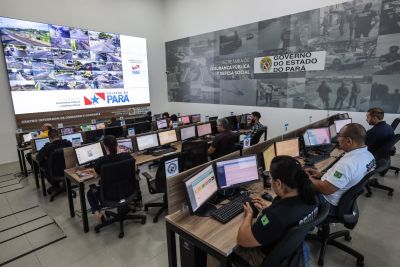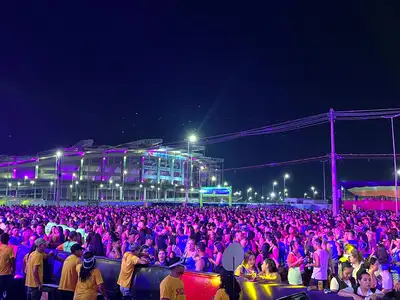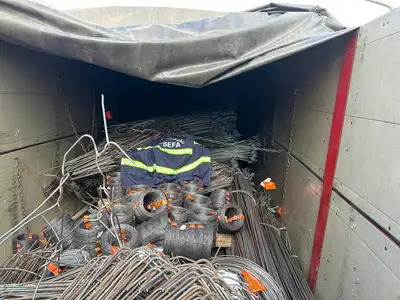Panel discusses regenerative bioeconomy and highlights the agroecological potential of Pará
Discussion involves public authorities, the private sector, social and environmental technology developers, and best practices for the clean economy
Regenerative bioagriculture with a social basis was the subject of the panel ‘Regenerative Bioeconomy – solutions for circular, resilient, and low-carbon production systems’ held at the Pará Pavilion of the Conference of the Parties to the United Nations Framework Convention on Climate Change, COP 30, in Belém, on the afternoon of this Tuesday (18).
The event brought together public authorities, the private sector, sustainability technology developers, funding agents, and other actors in the environmental regeneration and sustainable production process in the forest.
“Our goal is to transform Pará into a hub for the production of biochar manufacturing plants (bio-input) for the entire northern Brazilian region,” declared Ricardo Figueiredo, executive director of the company Net Zero, who participated in the panel.
Potential
Net Zero aims to transform agricultural waste such as coffee and cocoa husks, sugarcane bagasse, coconut shells or fibers, and palm fruit bunches and husks, among others, into regenerative bio-input, as it already does in other parts of the country.
Ricardo pointed out that Pará is among the six most important Brazilian states due to its potential for agricultural waste production, with Brazil being the third largest producer, behind only China and the United States.
“The Government of Pará currently has a directive to transform the rural development model,” emphasized the Secretary of State for Family Agriculture, Cássio Pereira, who was part of the panel and highlighted the commitment of the Pará government to promote the low-carbon transition that everyone needs.
“We have a State Policy on Climate Change, the State Plan called Amazônia Agora (State Plan called Amazon) which has goals and a portfolio in implementation. We have a bioeconomy plan discussed with society, monitored with transparency, and exposed in accessible means. And within this quite innovative policy, we have a set of startups, discussions, and the part of industries and machines for the development of new technologies,” added Cássio Pereira.
Júnior Serra, superintendent of the Brazilian Cooperatives Organization in Pará (OCB/PA), and Clóvis Zapata, representative of the United Nations Industrial Development Organization - UNIDO for Brazil, also participated in the discussion, moderated by João Teixeira, sustainability manager at Natura, a company that works with over 40 traditional cooperative communities and associations here in the Amazon.
“There are more than 10,000 families working at the forefront of this base, whether in sustainable extraction, agroforestry systems, or regenerative crops, all to provide the unique ingredients that we use in our products,” detailed João, who added that the company also supports more than 20 agro-industries that add more value to the products of these communities.
Júnior Serra defended the strategic role of cooperatives to strengthen these local economies and advance in the market, citing that there are family agriculture cooperatives that reach revenues of R$ 46 million. “Cooperatives have an essential social and economic role so that this population, our riverside dwellers, our quilombolas, and our indigenous people can not only verticalize but also access these markets as a whole,” he pointed out.
Clóvis Zapata emphasized that UNIDO is establishing a fund of about R$ 500 million to finance the construction of biofertilizer factories from urban waste. “I hope that here in Pará we will have one or several of these plants; this is our expectation, which will receive support from the fund. We will also have a part of technical assistance, which will go both to the government and to local communities, and we already have the partnership of Sebrae to provide training,” explained Clóvis, who reinforced that the fund is available to think about more specific projects with the government of Pará.


